Ahead of a Classical Pride string septet performance at the Barbican on 7 July, violist Stephen Upshaw examines the work of US composer Julius Eastman, whose works initiate difficult, but much-needed conversations
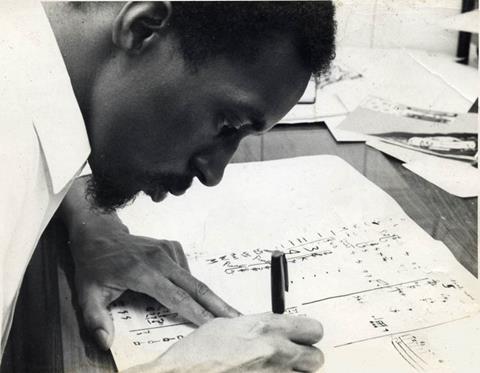
Discover more Featured Stories like this in The Strad Playing Hub.
American musician Julius Eastman (1940-1990) was the definition of a polymath. His work encompassed high profile work as a singer (such as his seminal recording of Peter Maxwell Davies’s Eight Songs for a Mad King), a Curtis-alum pianist, University of Buffalo professor and academic, and composer. He broke the mould of what many in the musical establishment thought the above roles should be through the way he lived his life and how he wrote music. These choices represent not just a contrarian rebellion against traditions but an active choice to live every day as a revolutionary act.
Written in 1979 and premiered in 1980 at a portrait concert organised at Northwestern University, Gay Guerilla situates itself at the intersection of different threads of Eastman’s work. One such thread is the mixture of secular and sacred references in his music. Acknowledging the centuries old function of music as amplifier of highly charged feelings of conviction, Eastman puts his own spin on this spiritual fervour in works such as Our Father and Holy Presence of Joan D’Arc. In Gay Guerrilla, Eastman quotes Martin Luther’s famous hymn A Mighty Fortress is our God and creates a contemporary minimalist Choralfantasie. As Luciano Chessa observes:
’Choral fantasias were the opening movement of many of Johann Sebastian Bach’s Chorale Cantatas and are among the most thrilling participatory moments in the entire Lutheran liturgy. Chorale melodies in general can be conducive to militancy: they are constructed so as to be easy to memorise; some look and function as a “call to arms”; they are a powerful tool to unify a group, as everyone in the group is familiar with the melody; and as a chorale is first heard, the congregation is typically frenzied with enthusiasm and tends to participate in the singing. In A Mighty Fortress Is Our God by Martin Luther, images of warfare are conjured up already in the title, and the text is a call for fortitude and strength (pride!) to overcome oppression.’
Gay Guerilla also adopts Eastman’s penchant for provocative and politically focused titles. As an openly gay man living when he did (homosexuality was only free from criminal conviction in all US states in 2003), Eastman used his titles to initiate difficult conversations and force listeners to consider uncomfortable truths. About the title of this work, the composer said: ’These names, either I glorify them or they glorify me. And in the case of “guerrilla,” that glorifies ”gay.” A guerrilla is someone who in any case is sacrificing his life for a point of view.’
’A guerrilla is someone who in any case is sacrificing his life for a point of view’
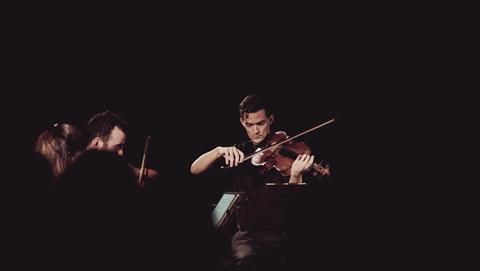
Another democratising element of many of Eastman’s works is their open scoring, allowing works to be performed by multiple instrumental combinations. Most often performed with multiple keyboard players, the version we will be performing of Gay Guerilla in Classical Pride is an arrangement for string septet by the American composer Jessie Montgomery.
In today’s world where some political systems still aim to curtail rights of marginalised people, Martin Luther’s words from A Mighty Fortress are particularly resonant: ’For still our ancient foe doth seek to work us woe…’.
During Pride month, we come together as a community to actively celebrate our differences and loudly proclaim that we are all equal. I hope you can join me and my colleagues as we celebrate the work of Julius Eastman on 7 July.
Stephen Upshaw will curate a string septet performance of Gay Guerilla on Sunday 7 July, 5:30PM, Barbican Centre Level G. Entry is free. Find out more here.
Read: Session Report: The Solem Quartet’s recording of 20th-century and contemporary music
Read: Technique: Violist Clifton Harrison on bowing arm movement
Read more Featured Stories like this in The Strad Playing Hub
The number one source for playing and teaching books, guides, CDs, calendars and back issues of the magazine.
In The Best of Technique you’ll discover the top playing tips of the world’s leading string players and teachers. It’s packed full of exercises for students, plus examples from the standard repertoire to show you how to integrate the technique into your playing.
The Strad’s Masterclass series brings together the finest string players with some of the greatest string works ever written. Always one of our most popular sections, Masterclass has been an invaluable aid to aspiring soloists, chamber musicians and string teachers since the 1990s.
American collector David L. Fulton amassed one of the 20th century’s finest collections of stringed instruments. This year’s calendar pays tribute to some of these priceless treasures, including Yehudi Menuhin’s celebrated ‘Lord Wilton’ Guarneri, the Carlo Bergonzi once played by Fritz Kreisler, and four instruments by Antonio Stradivari.




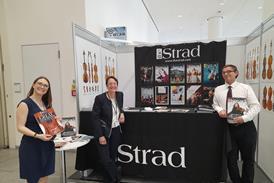







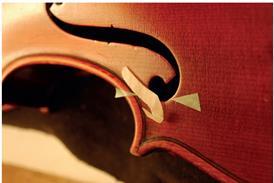

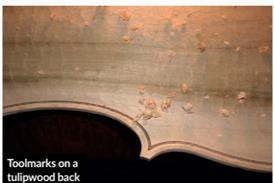























No comments yet